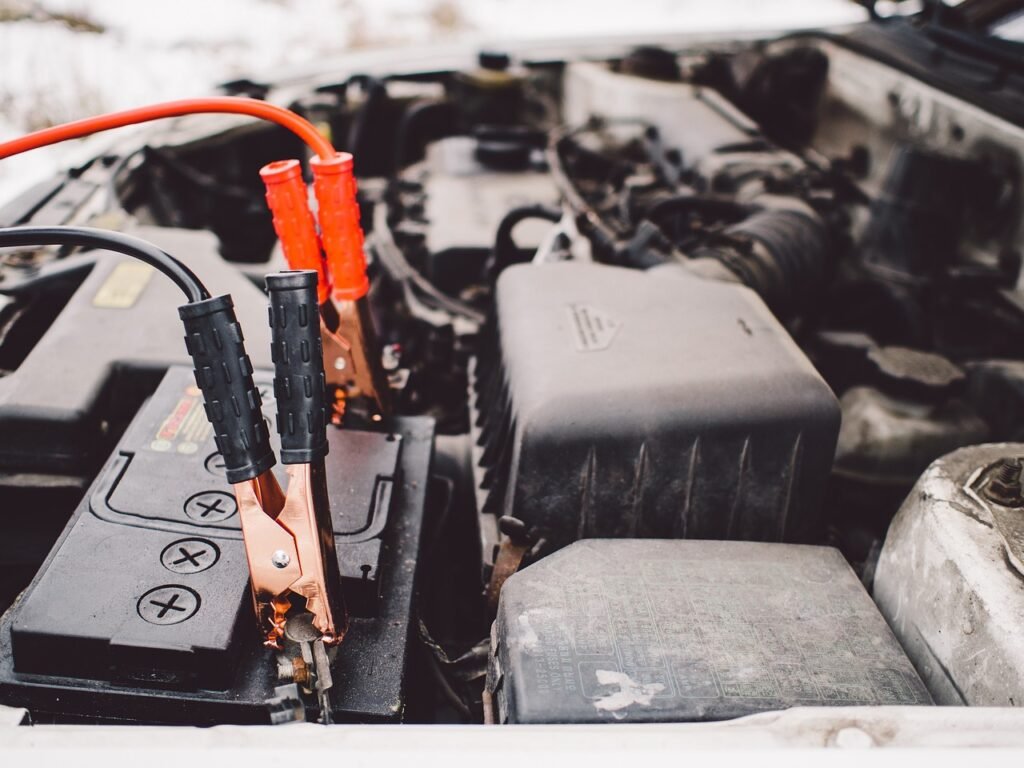Greetings to all the auto ecology enthusiasts and proponents of future mobility! Much can be said on the topic of home and workplace battery technology, all of which are crucial to the EV industry which is now in a position to rapidly transfer into the main stream only because of those two very things. Technologies that enhance EV batteries have been hailed as the way forward in the race toward an environmentally friendly world. This write-up’s one job is to dazzle with the tale of highly developed battery technology development, starting from where we are now, the challenges, and, eventually, its perspective with EVs in the future.

Today: EV Batteries
Presently, the fundamental technology of electric vehicles is lithium-ion batteries (Li-ion). In terms of the EV industry, Li-ion offers a fine synergy with energy storage density and the power rate, and hence, it becomes the battery of choice for automotive manufacturers according to public perception. There are still many things distorting the real picture of what EVs really are, as [whether] somebody might go for a coup over money or junk to drive miles. For example, range anxiety is real, along with the substantially increased time for EV batteries to tank upon charge as compared to powering up with gas.
Challenges on the journey: What’s Holding Us Back?
Although lithium-ion batteries have actually spurred tremendous growth in electric vehicles, they are also flooded with various issues. The source of certain important complaints includes:
- The Fear of being stranded: The limited distance electric car batteries can cover at the moment seems to play as a deterrent, especially when far distant travel is contemplated. This makes the EVs seem less practical for many people because they are faced with the ever-ending discussion of where they can charge next.
- Waiting: Despite the advancement of fast-charging technology, it still takes comparatively long to fully charge an EV, leaving drivers upset at times and inconvenienced where travelling is concerned.
- High-priced: Batteries are costly or an obstacle in affordable EVs, particularly when discussing about longer-range varieties. This may discourage many consumers from accessing EVs as one more impediment it possesses toward embracing a greener tomorrow.
- Environment: The battery’s lithium development and radioactivity conditions for batteries are fraught with serious sustainability concerns. Clean alternatives will need to be made for long-term EV adoption. Moreover, recycling facilities should be improved.
Innovation for the Green Future: What Lies Ahead in the EV Battery Technology?
The desire for improved batteries has incited a spree of innovations. Here are some exciting developments that could be precedent-setting for EVs:
Solid-state Batteries: Generally, the next-gen batteries integrate solid electrolyte instead of the liquid one. This will be conducive to quick charging, elongation of battery life, and a higher level of safety for batteries, which are less flammable. Having to charge an EV just as one would gas a car seems far fetched indeed.
Lithium Sulfur Batteries: These batteries are believed to have more energy density than Li-ion batteries and should allow for longer driving ranges. Yet, some technical challenges remain and need to be addressed to meet viable conditions for everyday use.
Silicon Anode Technology: This advanced technology could boost energy density through a swap-to silicon from the graphite advance of Li-ion batteries. Such increases may help the EVs realize the long lost important mileage advantage without even having to redesign the entire battery system.
Advanced Recycling Technologies: Efficient EV battery recycling will be vital. By rescuing valuable metals such as lithium and cobalt, we can lessen environmental damage in a sustainable manner that will secure a resource supply forever.
ASDC involves a cadre of professionals who understand that a qualified workforce will be instrumental to pioneering Electric Vehicle (EV) battery technology. ASDC will continuously put in place and support training programs for technicians with the requisition knowledge and set of skills to service and repair EVs; chief among these skill sets will be the area of management and handling of battery systems. The training of the next set of technicians prepares the workforce to meet the growing demand for electric vehicles.
Ideal! Creating Mutual Collaboration for Eternity
The receding horizon of EV battery technology is likely to be an attractive exploration time. However, together, the research community, car industries, and policymakers must interlock to build the spectrum of possibilities for commercial gains. Together, we can accelerate discoveries alongside sustainable battery solutions and developments that make them accessible, including some semblance of infrastructural support for widespread utilization.
Get Involvers: Help Shape the Future of Electric Vehicles
EV technology is evolving rapidly and ASDC cannot be prouder than being at the vanguard. Please explore our website and learn more about training prepares for EV technicians. Are you looking to work on high-voltage systems, battery technology tech training, or charging infrastructure? We, then, have the courses through which one may facilitate one’s entry into the booming EV industry.
EV battery technology is rapidly advancing, ready to take a ride into a cleaner, greener future. The innovations in energy storage will redefine electric mobility through better performance, efficiencies, and sustainability.
Are you going to be part of the electric revolution? ASDC is there to give you the knowledge and skills to help build our future in transportation. Let’s leapfrog, collaborate, and push progress together!


